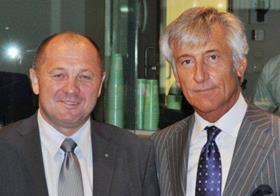
Paolo Bruni, president of European agricultural cooperatives federation Cogeca and a leading figure in the European and Italian fresh produce trade, has called on the EU Council of Ministers to take 'necessary and extraordinary intervention' to address a crisis currently affecting the continent's fresh produce industry.
During a speech in Brussels to EU agriculture ministers, Bruni said it was essential that the trading bloc intervene to support fruit and vegetable production, which he said had been severely compromised by the recent E.coli crisis and a resulting major dip in consumption levels.
'This has triggered enormous damage to the entire sector, which is now facing one of its most serious crises of all time,' he argued.
'It is essential that a package of measures, in addition to the €210m allocated by the Commission in June, be approved quickly.'
Alongside European farming body Copa, Cogeca has requested further help for growers affected by the crisis, which saw an outbreak of illness and deaths linked to a rare strain of E.coli attributed wrongly to salad vegetables and, at the height of the crisis, Spanish cucumbers.
Although substantial proof of a link to salad vegetables was never forthcoming, a number of third countries including Russia opted to ban imports of vegetables from the EU, heaping further downward pressure on market prices already dampened by drained consumer confidence.
'Copa-Cogeca is calling for all fruit and vegetable producers who suffered from a fall in prices to be eligible for support,' continued Bruni, 'and in particular the provision of a payment of €30 for every 100kg of peaches and nectarines to be added to the maximum amount offered for product withdrawal.'
He added: 'At this dramatic time for producers, we need to create an integrated system using the existing regulations that will allow the difference between the EU's maximum contribution - as laid out in Regulation 585/2011 – and the affected product's sale price to be compensated retroactively.'
In his capacity as president of the EU, Polish agriculture minister Marek Sawicki said he was aware of the extent of the problem and pledged to support the request in the Council of Ministers.



